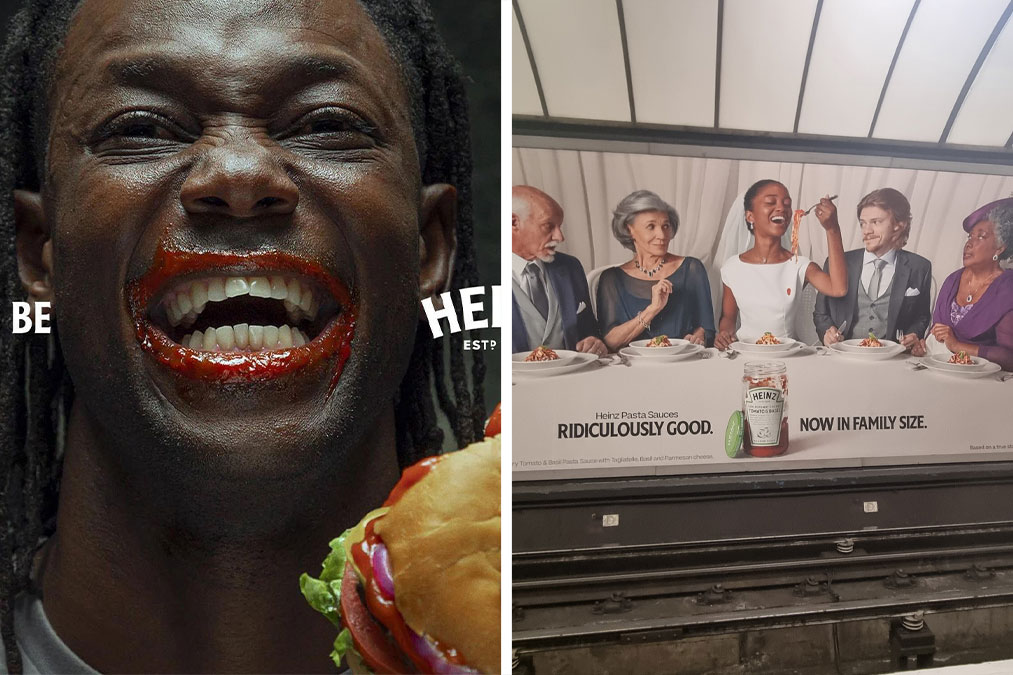
Days After Apologizing For Erasing Black Dads, Heinz Slammed For New “Blackface” Ketchup Ad
Heinz sparked backlash for perpetuating racial bias against Black people after releasing two different controversial ads. After facing significant criticism for seemingly erasing Black fathers during the UK’s Black History Month, the beloved ketchup brand issued an apology. Days later, Heinz released a new advertisement, this time reminiscent of blackface.
- Heinz apologized for an ad accused of erasing Black fathers during the UK's Black History Month.
- Heinz's new ad with a Black bride sparked backlash for lacking depiction of Black fathers.
- The CDC found Black fathers are often involved in their children's lives if not more so than others.
Last Friday (October 4), author Nels Abbey experienced an unpleasant journey taking the London tube after coming face to face with Heinz’s new “ridiculously good family size” ketchup bottle poster.
The banner showcased a wedding scene where a group of five people, dressed in formal attire, is seated at a long table.
In the center, a Black bride in a white wedding dress joyfully indulges in a forkful of spaghetti topped with ketchup.
The bride is surrounded by older white guests, possibly her in-laws, and a younger white groom on her right, along with an older Black woman, perhaps a relative.
Heinz sparked backlash for perpetuating racial bias against Black people after releasing two different controversial ads
Image credits: Erik Mclean
Nels subsequently took to his X page (formerly known as Twitter) to share a snap of the ad with a quote from Nas’ 2012 song Daughters: “‘For my brothers with daughters’ Because, believe it or not, Black girls have Dads too.”
A slew of people echoed Nels’ disappointment as an X user commented: “Total erasure of Black fathers by such a mainstream brand is shocking. How did this get approved?”
A person wrote: “This is real sad pic. Black girls indeed have dads, but the sad part is that most of them are not around.”
A separate individual chimed in: “It’s subliminal messaging. It’s a ‘subtle’ way of perpetuating myths. The media have been doing this for years.”
In response to growing and widespread criticism, Heinz issued an apology, telling The Independent on Sunday (October 6): “We always appreciate members of the public’s perspective on our campaigns.
“We understand how this ad could have unintentionally perpetuated negative stereotypes.
“We extend our deepest apologies and will continue to listen, learn, and improve to avoid this happening again in the future.”
However, amid the UK currently observing Black History Month, the insensitive advertisement continued to ignite negative reactions.
Heinz faced significant criticism for seemingly erasing Black fathers during the UK’s Black History Month
Image credits: nelsabbey
“Admittedly I had to look a few times to ensure I wasn’t seeing things,” Nels wrote of his experience seeing the ad in The Guardian on Tuesday (October 8). “I wasn’t.”
“Where was her father, whom the average person – looking at her – would assume to be Black? Nowhere to be seen. Not at the top table. Not anywhere.”
The stereotype that Black fathers are largely absent and “deadbeat” is not supported by real data.
In fact, studies, including one from the Centers for Disease Control, show that Black fathers are as involved—if not more so—in their children’s lives compared to fathers from other racial groups.
Image credits: Thunder 104.5 WGRX
Black fathers, whether living with or apart from their children, are active in daily caregiving, such as helping with meals, bathing, and reading to their kids.
Although a higher percentage of Black fathers live apart from their children, this is often due to structural inequalities rather than a lack of involvement.
Studies also show Black fathers place a strong emphasis on providing both emotional and financial support to their children, The Washington Informerreported in 2014.
“The stereotypes we inherited from yesteryear are yet to be updated and are crowded out by statistics that don’t paint a full picture,” Nels explained.
Heinz also released a new advertisement, this time reminiscent of blackface
Image credits: Thunder 104.5 WGRX
The author concluded: “But let this be a lesson. From advertising to TV to reality, what must always be remembered is that Black girls, like Black boys, have fathers too. Keeping Black men off the table does no one any good.”
Nevertheless, just days after issuing an apology for the family-size ketchup ad, Heinz seemingly carried another faux pas, this time drawing comparisons with blackface.
Released over the weekend, “Heinz Smiles” features three portraits of individuals eating fast food with ketchup smeared on their mouths.
The individuals – a white man, a white woman, and a Black man – appear to replicate the Joker’s clown eerie make-up, accentuating big lips and an exaggerated smile.
Image credits: Thunder 104.5 WGRX
“It’s all about amplifying people’s irrational love for Heinz within this moment in pop culture,” Gut New York chief creative officer Lucas Bongioanni said in a statement. “That messy experience of having ketchup smeared across your face was the perfect way to connect with global consumers and spark conversation.”
While it has been reported that Heinz’s advertisement is meant to highlight the Halloween season, drawing references from the Joker and the horror movie Smile, many people saw a resemblance to historically racist practices.
“Are we going to talk about the history of BIG RED LIPS…. Or just act like Blackface doesn’t exist. And wasn’t established way before Joker ffs,” an Instagram user commented.
Blackface is a historical practice that dates back around 200 years. It’s seen as racist and many people find it deeply offensive, the BBCreported in 2020.
After facing significant criticism the beloved ketchup brand issued an apology
Image credits: Jacob Rice
It commonly refers to when someone (typically with white skin) paints their face darker to resemble a Black person, but it isn’t just about painting skin a different color.
Blackface was a practice in which Black people were mocked for the entertainment of white people, and negative stereotypes were promoted across the US and Europe, as per the BBC.
“I woke up to this new Heinz campaign on of my group chats asking “Is it me, or is that borderline Blackface? HOW? IN THE NAME OF 2024, HOW?” Andre Gray, chief creative officer at Annex88 wrote in a viralLinkedIn poston Monday (October 7).
Andre continued: “How are we still lacking the diverse teams and cultural competency to have the semiotics of our imagery properly scrutinized BEFORE it gets out in the world?
“From agency to client, to production, to media…. no one said, maybe we should move this away from minstrel show and Blackface connotations????”
View this post on Instagram
A minstrel show was a type of American theater that featured white performers in blackface makeup who used caricatures of African Americans to entertain audiences.
The shows were popular in the mid-19th century and included song, dance, tall tales, and stand-up comedy.
Andre’s posts sparked divided reactions as a LinkedIn user commented: “My unpopular opinion in this case, is that I think the Heinz ad lacks the critical implications to be considered Blackface.”
Amid the UK currently observing Black History Month, the insensitive ads continued to ignite negative reactions
View this post on Instagram
Someone else penned: “Disgusting. I hope every single layer of people involved acknowledges their bias and takes accountability.”
Others pointed to Gut New York, the creative agency behind “Heinz Smiles,” sharing photographs of their visibly diverse team of employees.
Black Americans expressed broad concerns about how they are depicted in the news media, with majorities saying they see racist or negative depictions and a lack of effort to cover broad segments of their community, a 2023 Pew Research Center study found.
Four in five Black adults say they see racist or racially insensitive depictions of their race in the news either often or sometimes.
Bored Panda has contacted Heinz, Nels Abbey, and Gut for comment.
“They do it thinking we won’t notice,” a reader commented
Image credits: HornChronicles
Image credits: RaicillaU
Image credits: HumaneDataID
Image credits: ElchiBola
Image credits: txteyy
Image credits: DesOnlyWon
Image credits: AshleyTheophane
Image credits: poplasny
Image credits: what_the_hammer
Image credits: ralfie1111
Image credits: cw_dex
Poll Question
Thanks! Check out the results:
98Kviews
Share on FacebookExplore more of these tags
The missing father is kind of weird and unfortunate. But "blackface" Nobody got the Joker reference? How about we just don't put any black people in ads anymore. Oh wait, no, that's no good either.
Your last sentence is weird. And yeah, it was clearly a joker ad collaboration, but a black guy with red lips like that? Oh hell no.
Load More Replies...It seems too many people spend all their energy looking for ways to interpret things in the worst possible way. And get people fired in the meantime - all those people going ‘how does this still happen in 2024??’ - yes, it’s 2024. Which is why I highly doubt a company like Heinz was intentionally trying to be racist.
The "missing father" is one thing, but the black dude with the red ketchup lips? If that is not intentional then no one at Heinz ever paid attention in history class
Load More Replies...On the second set of ads, the article points out the ads are meant to replicate the Joker's smile using ketchup, but then goes on to claim they are replicating stereotypical "big lips". What the actual frack?? This is one of the most ridiculous "reaches" I've ever seen.
Well, the black man had a black face so...? I got nothing.
Load More Replies...TBH When I looked at the first ad I thought the guy on the far left could have been her father - certainly closer in colouration that he is to the very pale-skinned presumed groom.
Wait, who is putting ketchup on spaghetti?! Neither of these ads are racist, but they're demented.
Ok just zoomed in and apparently Heinz makes a pasta sauce, so despite the article saying such, the spaghetti is not being topped with ketchup. TIL Heinz makes pasta sauce but doesn't sell it here in the US?
Load More Replies...So we cannot represent single mothers in ads now? How inclusive of the woke culture.
Had they included a black dad, then all the black people raised by single mothers would have stood up and cried foul/racist. You can't win with people with that victim mentality. It's best to not consider them, do your thing, and ignore them if they find offense in what you are doing. They are "Karens" with a "justified cause", but they are Karens nonetheless.
Load More Replies...My biological father was black and my biological mother was white. I only saw the joker in the later ads not blackface. The bridal picture, I wondered if the white couple might be the brides parents. My real Mam and Dad, they adopted me, were both white. I can understand why some people were upset but perspective can and often is incredibly complicated.
When will companies learn that listening to Twitter is a bad idea? People love to get outraged about the slightest / imaginary things and then get off on being such a moral superior person. Give them the little finger and they sell your organs to make a donation to PETA
These people know that there is a movie in the cinema featuring a guy with clown make up famous for joking around? Right? And that the ketchup lips are a reference? Why are they so serious?
The missing father is kind of weird and unfortunate. But "blackface" Nobody got the Joker reference? How about we just don't put any black people in ads anymore. Oh wait, no, that's no good either.
Your last sentence is weird. And yeah, it was clearly a joker ad collaboration, but a black guy with red lips like that? Oh hell no.
Load More Replies...It seems too many people spend all their energy looking for ways to interpret things in the worst possible way. And get people fired in the meantime - all those people going ‘how does this still happen in 2024??’ - yes, it’s 2024. Which is why I highly doubt a company like Heinz was intentionally trying to be racist.
The "missing father" is one thing, but the black dude with the red ketchup lips? If that is not intentional then no one at Heinz ever paid attention in history class
Load More Replies...On the second set of ads, the article points out the ads are meant to replicate the Joker's smile using ketchup, but then goes on to claim they are replicating stereotypical "big lips". What the actual frack?? This is one of the most ridiculous "reaches" I've ever seen.
Well, the black man had a black face so...? I got nothing.
Load More Replies...TBH When I looked at the first ad I thought the guy on the far left could have been her father - certainly closer in colouration that he is to the very pale-skinned presumed groom.
Wait, who is putting ketchup on spaghetti?! Neither of these ads are racist, but they're demented.
Ok just zoomed in and apparently Heinz makes a pasta sauce, so despite the article saying such, the spaghetti is not being topped with ketchup. TIL Heinz makes pasta sauce but doesn't sell it here in the US?
Load More Replies...So we cannot represent single mothers in ads now? How inclusive of the woke culture.
Had they included a black dad, then all the black people raised by single mothers would have stood up and cried foul/racist. You can't win with people with that victim mentality. It's best to not consider them, do your thing, and ignore them if they find offense in what you are doing. They are "Karens" with a "justified cause", but they are Karens nonetheless.
Load More Replies...My biological father was black and my biological mother was white. I only saw the joker in the later ads not blackface. The bridal picture, I wondered if the white couple might be the brides parents. My real Mam and Dad, they adopted me, were both white. I can understand why some people were upset but perspective can and often is incredibly complicated.
When will companies learn that listening to Twitter is a bad idea? People love to get outraged about the slightest / imaginary things and then get off on being such a moral superior person. Give them the little finger and they sell your organs to make a donation to PETA
These people know that there is a movie in the cinema featuring a guy with clown make up famous for joking around? Right? And that the ketchup lips are a reference? Why are they so serious?

 Dark Mode
Dark Mode 

 No fees, cancel anytime
No fees, cancel anytime 



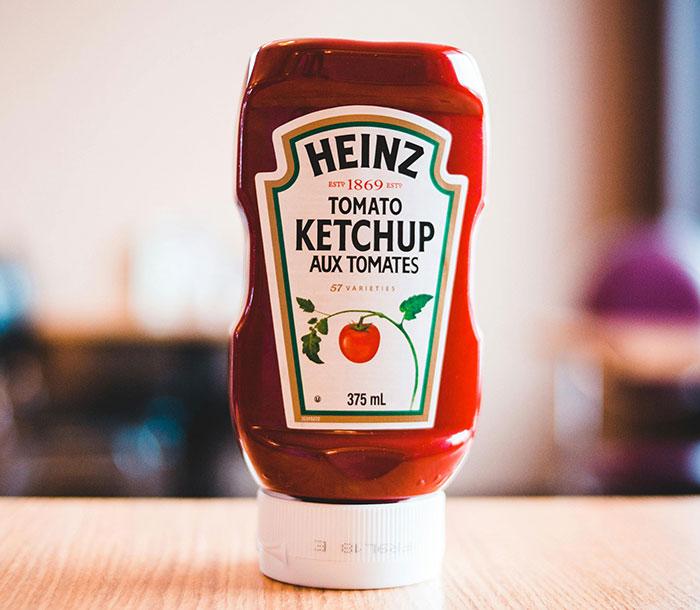
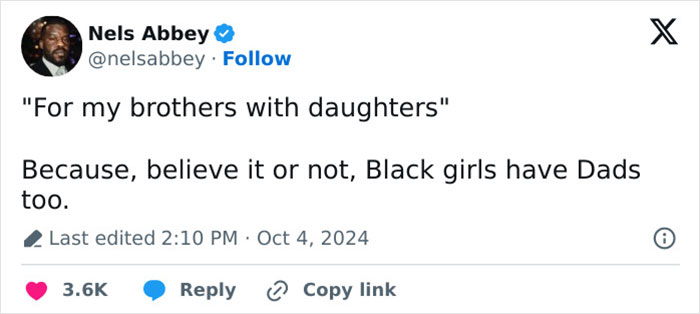
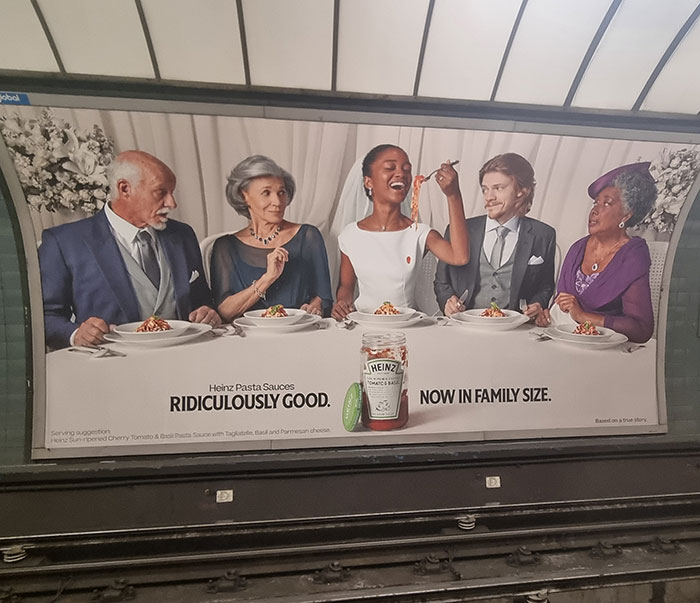
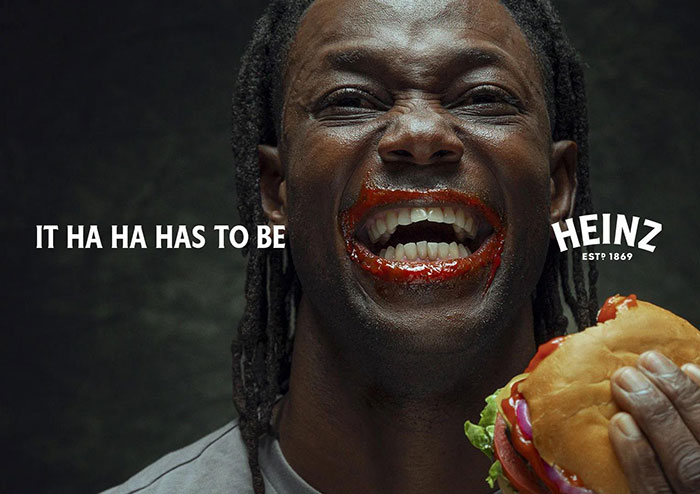
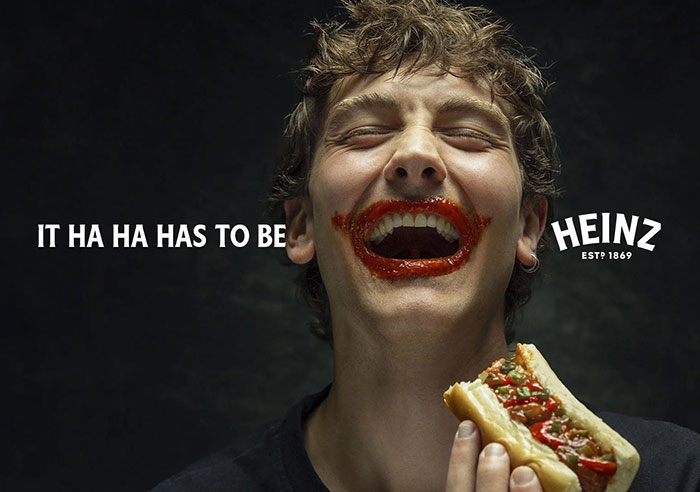
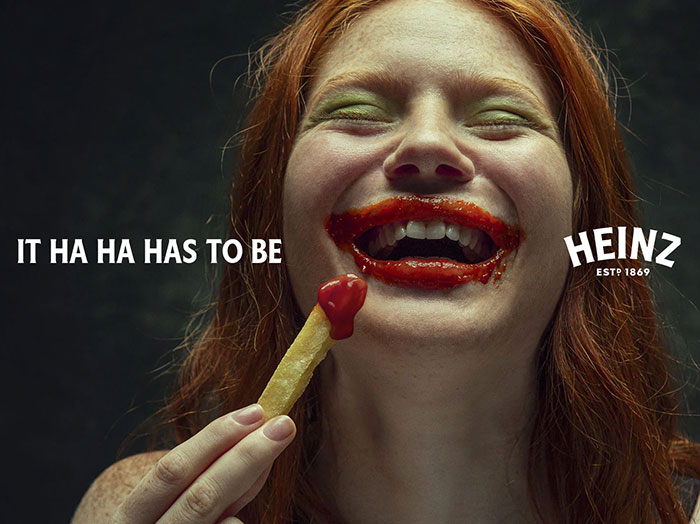
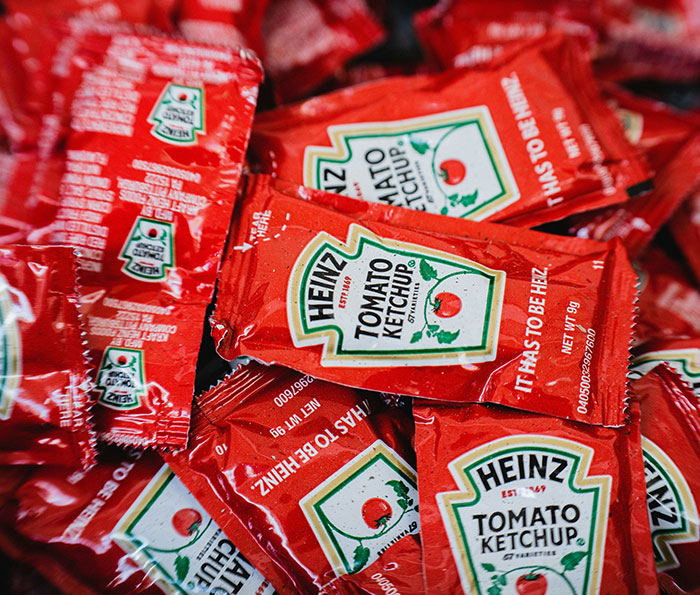
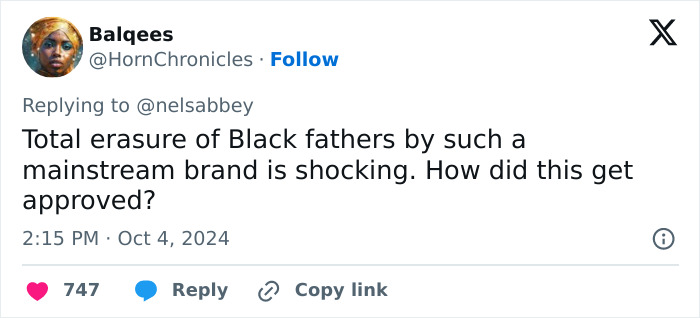
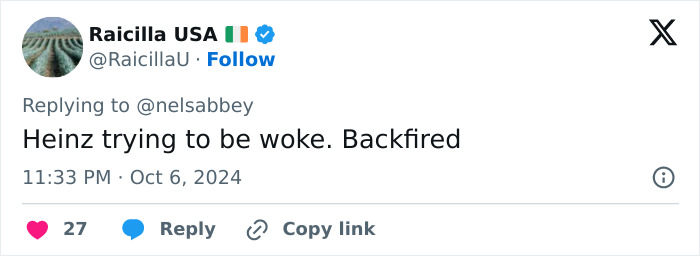
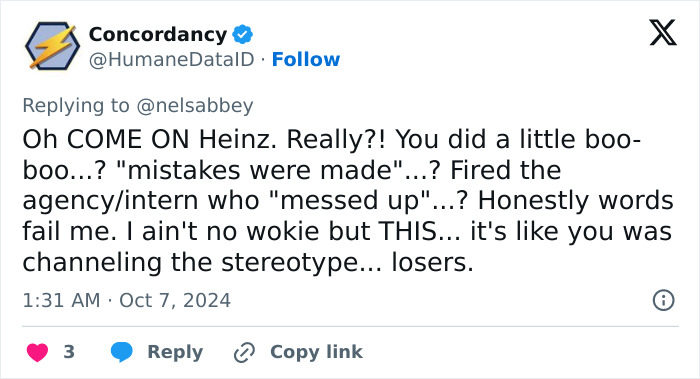
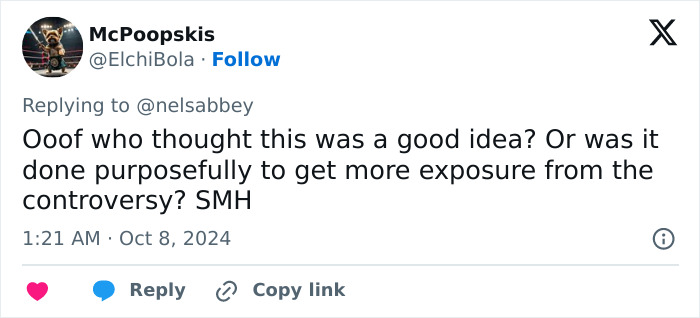
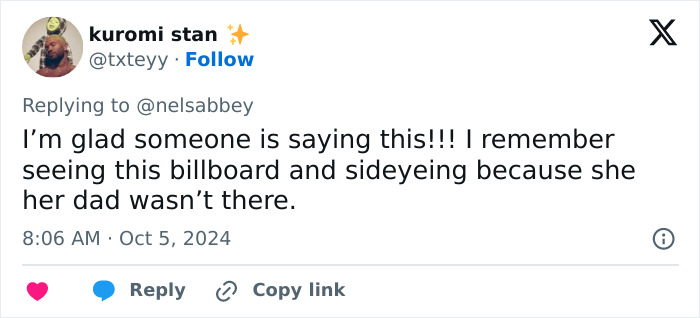
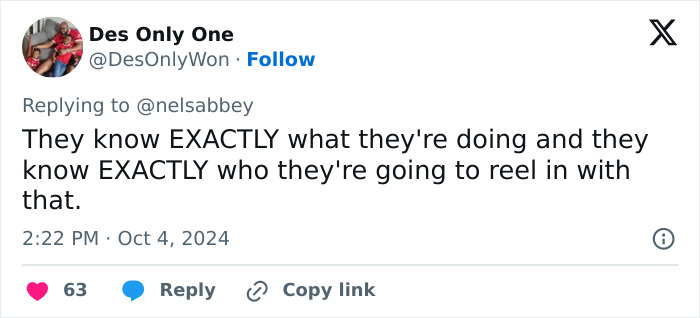
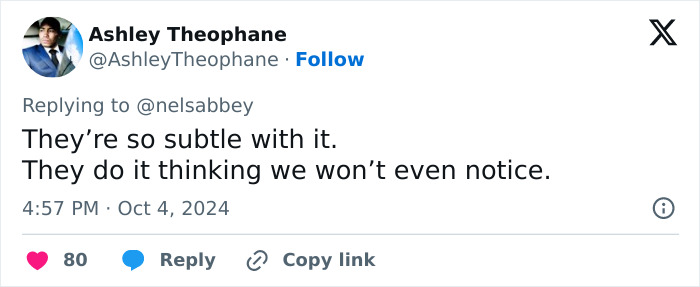
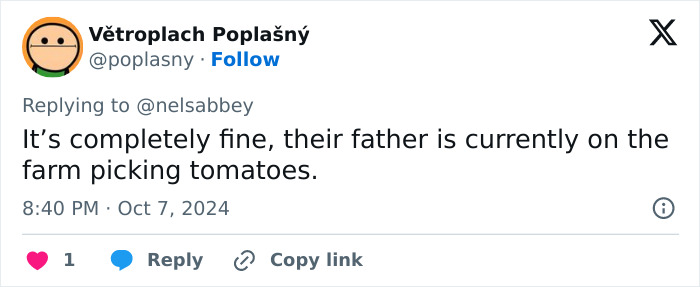
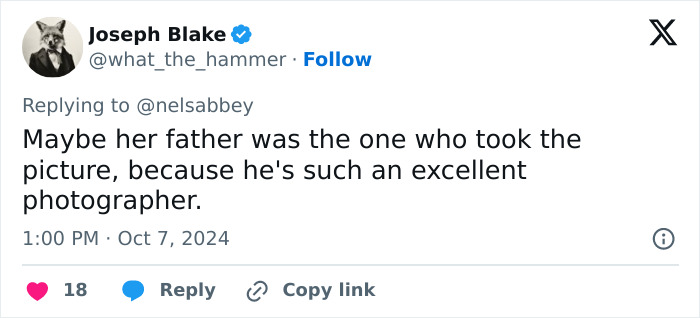
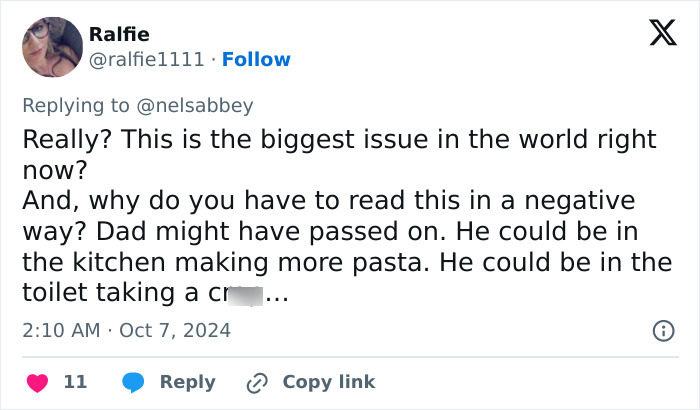
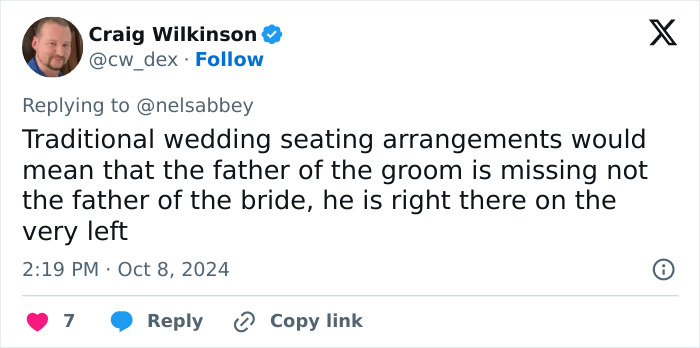






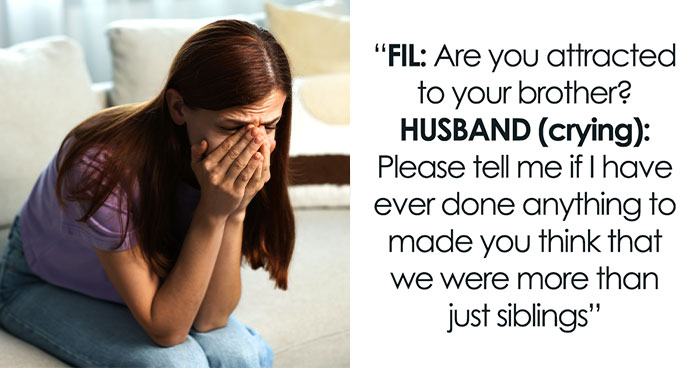
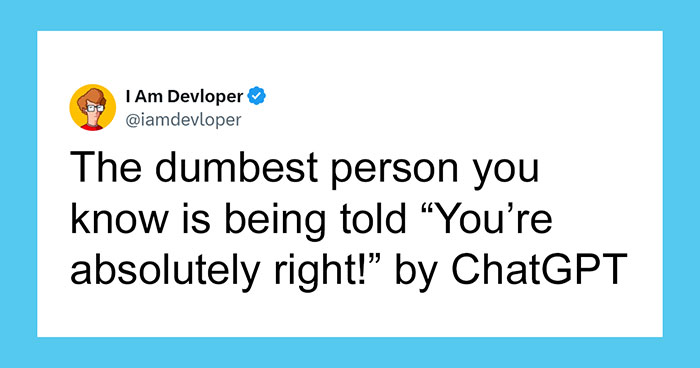
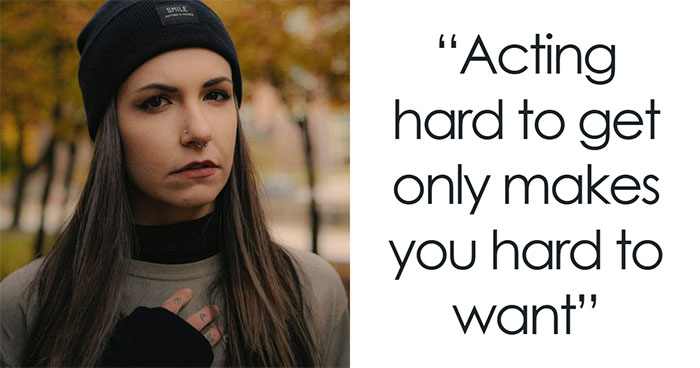
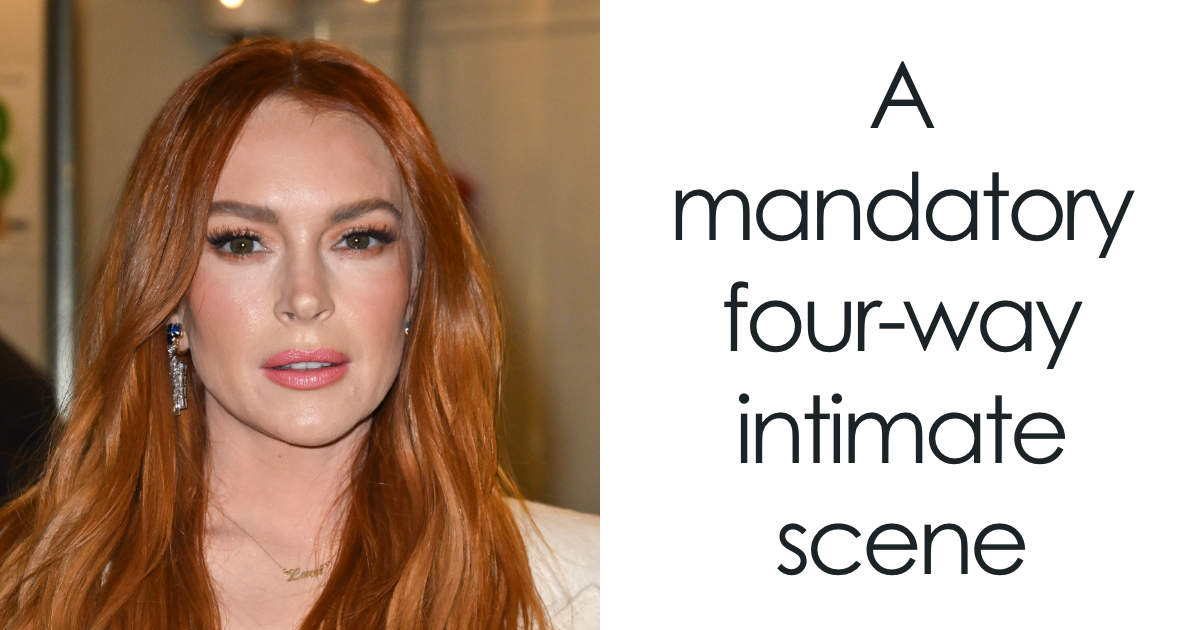
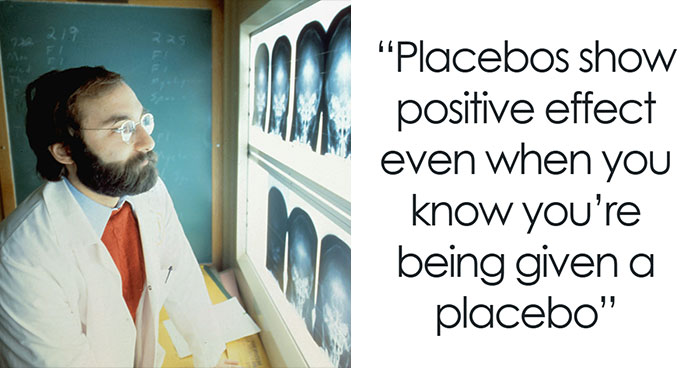
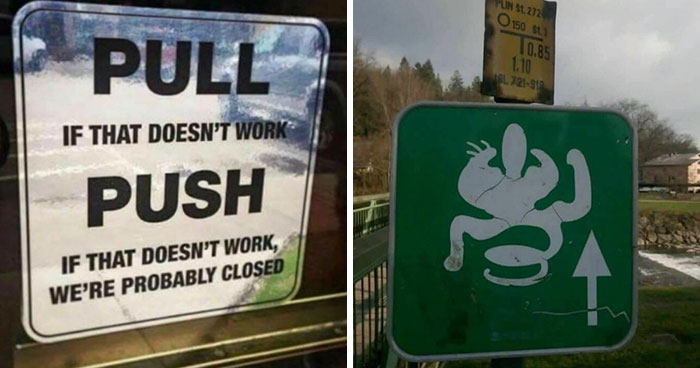


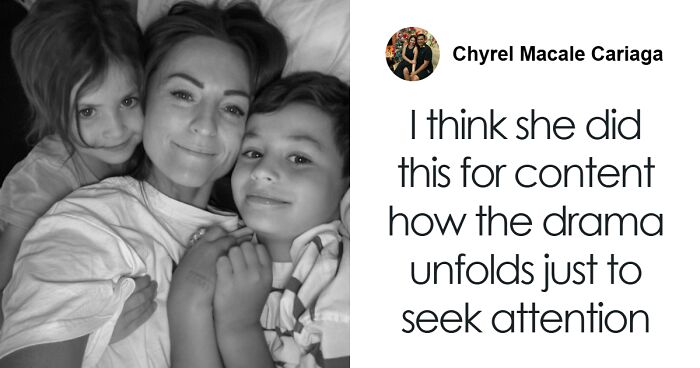
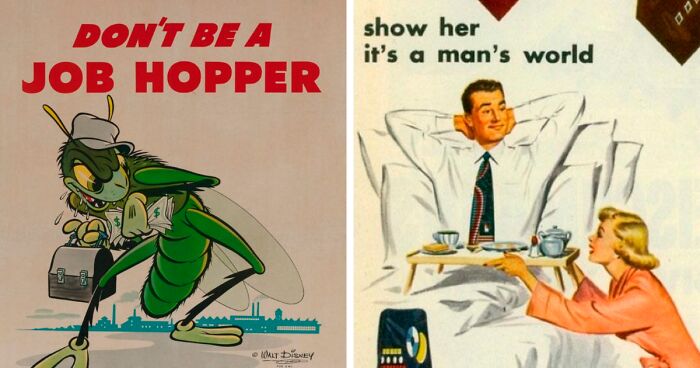


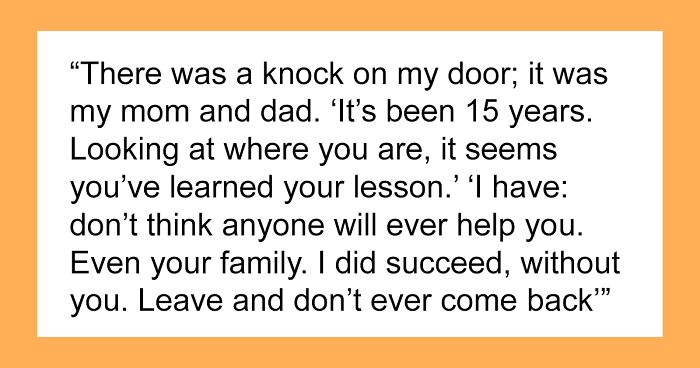
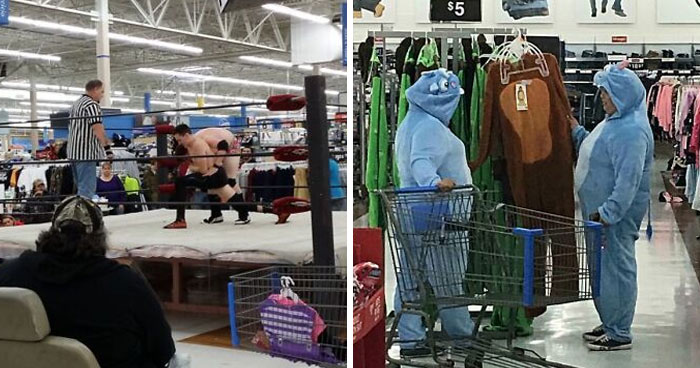

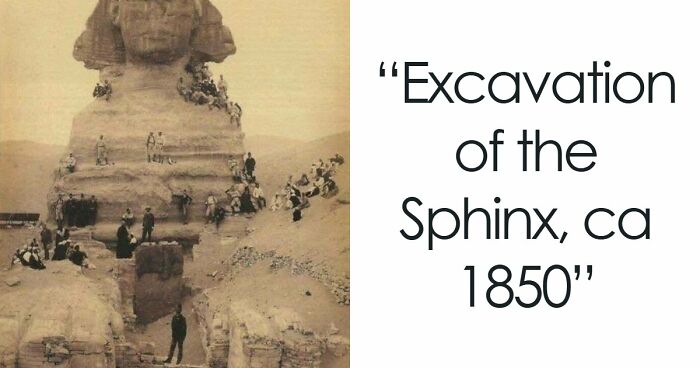
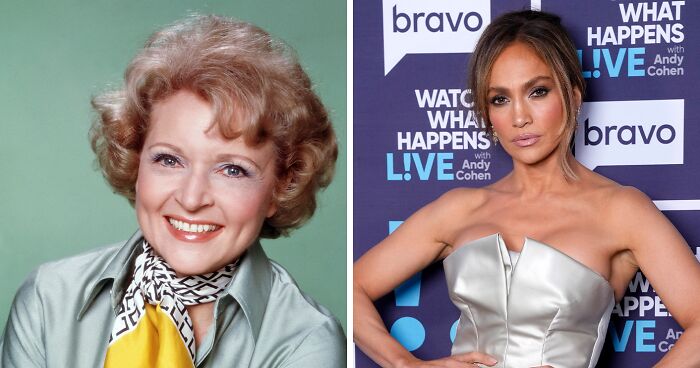
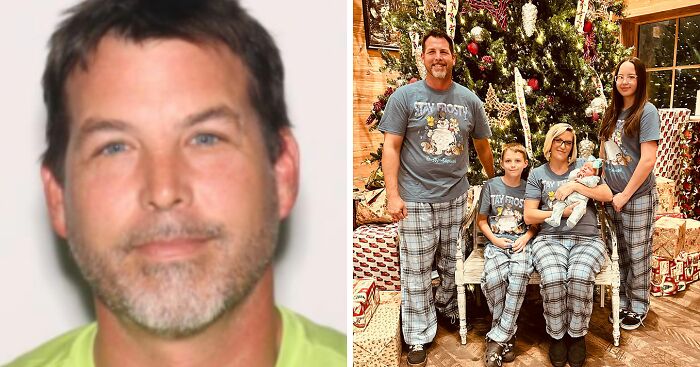

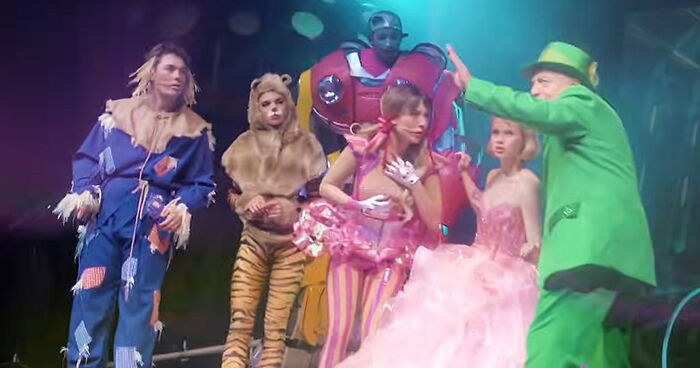
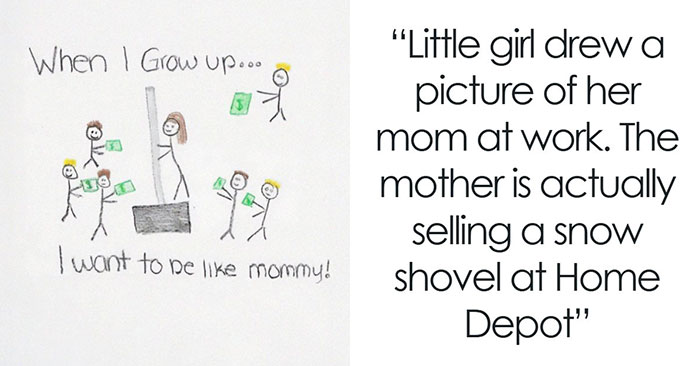

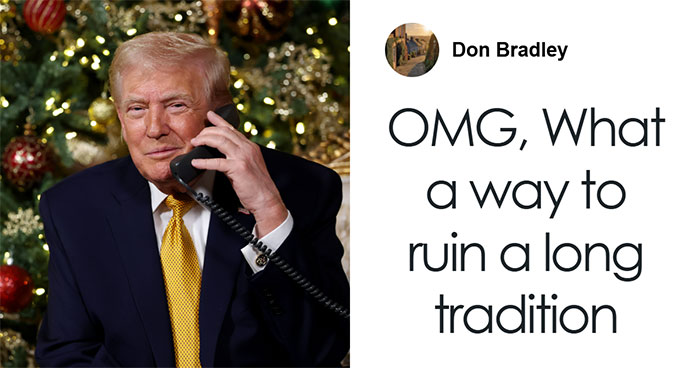


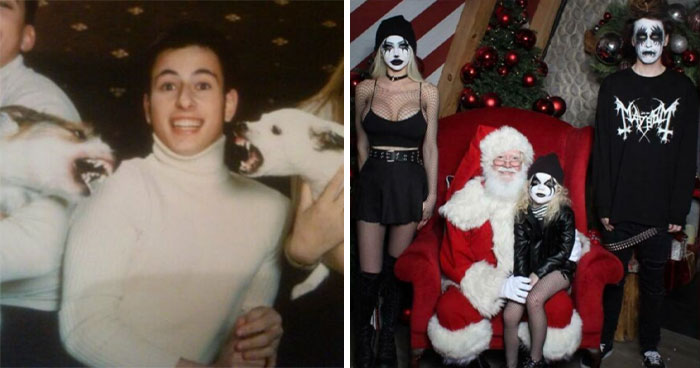


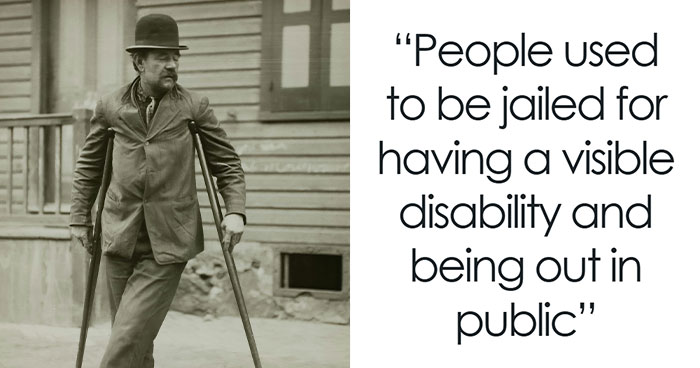










-36
77